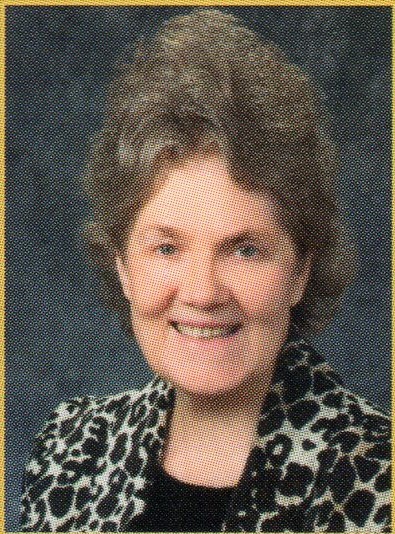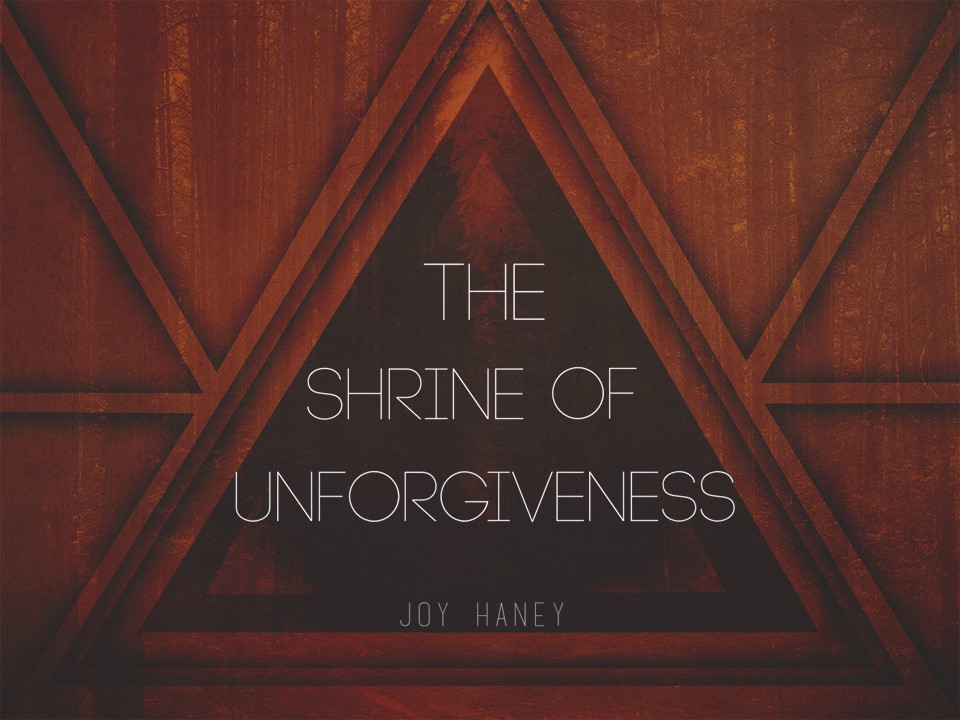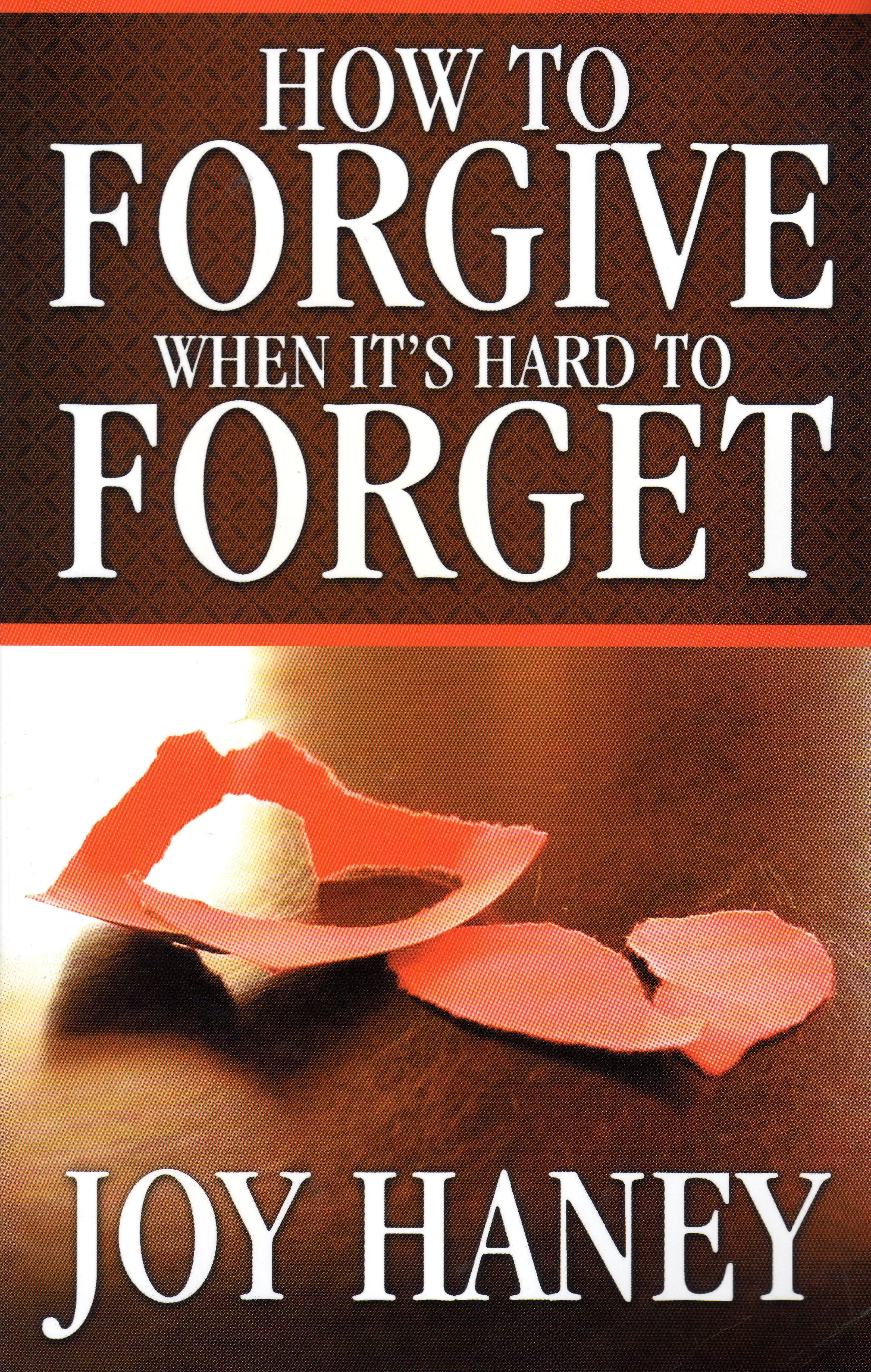
By Joy Haney
Just before Leonardo da Vinci started to work on his great painting, The Last Supper, he had a violent quarrel with a fellow painter. He was so angry and bitter that he determined to paint the face of his enemy, the other artist, into the face of Judas. He wanted each succeeding generation to look with scorn upon his friend. The face of Judas was one of the first he finished, and everyone could easily recognize it as the face of the painter with whom he had quarreled.
When he came to paint the face of Christ, he could make no progress. Something seemed to be holding him back and frustrating his best efforts. At length he came to the conclusion that the thing which was confusing and frustrating him was that he had painted his enemy into the face of Judas. So he painted out the face of Judas and began again to work on the face of Jesus. So successful were his efforts that the picture has been acclaimed as one of the greatest paintings ever.
You cannot at the same time be painting the feature of Christ into your own life, and painting another face with the colors of enmity and hatred. Unforgiveness will hinder our relationship with God and cause our prayers not to be answered. In Mark we read, “What things soever ye desire when ye pray, believe that ye receive them, and ye shall have them. And when ye stand praying, forgive . . .” (Mark 11:24.25).
Forgiveness is the key which unlocks the door of hatred and resentments. It breaks the chains of hard-core bitterness. We are told to love one another, but sometimes it seems impossible to do so. “Seeing ye have purified your souls in obeying the truth through the Spirit unto unfeigned love of the brethren, see that ye love one another with a pure heart fervently” (1 Pet. 1:22).
Unfeigned means genuine love; not counterfeit or hypocritical. You may say, “I cannot forgive and love in that measure.” You are right! You cannot by yourself, but God can love through you. In Corrie Ten Boom’s book, Corrie Ten Boom, Her Life —Her Faith, she tells of her struggle with hatred and how the Holy Spirit helped her to love. This is the story of her reaction to a guard who was evil to her and her family in the Ravensbruck Prison during World War II.
Corrie encountered one of her biggest challenges in Berlin. Many meetings were planned for her, and at the close of each talk she would counsel with people one at a time. One evening she was tired and very impatient. A man stood in the corner of the inquiry room and waited until everyone had left. When Corrie looked at him, she thought, I wouldn’t like to meet him in a dark street when I was alone. Finally she turned to him, anxious to end her counseling and go home.
“How can I help you?” she asked.
He looked down and didn’t answer. Corrie became sharper in her tone. “Listen, sir, if you won’t speak up, I don’t know how to help you.”
When she saw the despair in his face, she regretted her attitude and started to silently pray for wisdom during the rest of the conversation.
When he spoke, Corrie knew why he was so hesitant. Her body stiffened as he said. “I am one of the guards of Ravensbruck. I was there at the time that you were one of the prisoners. At Christmas time I accepted Jesus Christ as my Saviour. I repented of my sins, but then I asked, ‘God, give me the opportunity to ask one of my victims forgiveness.’ That’s why I’m here. Will you forgive me?”
Corrie said she felt a warmth flow through her arm that forced the stiff hatred from her heart. She reached out her hand to grasp his, it was as if God’s love flowed through her. “I forgive you for everything,” she said, and then opened her Bible. She read 1 John 1:7,9: “In these verses it is written that your sins are forgiven. Isn’t it a joy that we may believe it?”
The former concentration camp guard covered his face and sobbed, “But I can’t forget my sins.”
Corrie’s simple but biblically sound explanation was, “Jesus will blot out your sins like a cloud. A cloud does not return. He will put your sins away as far as the east is from the west. If you repent, He casts them into the depths of the sea, forgiven and forgotten. Then He puts out a sign, NO FISHING ALLOWED.”
Without the experience of forgiving her enemies, Corrie’s messages would have been hollow. Forgiveness, however, was not an emotion that happened once and then continued without interruption.
Another prison guard, Carl, had been sentenced to sixteen years imprisonment in the jail at Vught, the very place where he had practiced his cruelties. Corrie was shown a letter from Carl while she was in Germany, in which he said that he had accepted Jesus as his Saviour. After reading this, Corrie decided to request an amnesty for him from Queen Juliana. Before she wrote to her queen, however, she decided to go to Vught to see Carl.
She walked into the courtyard where she and Betsie had stood, trembling with the memory of the Dutchmen who were shot before their eyes. When she met Carl, he said to her, “How happy I am that my sins have been taken away.”
For a moment Corrie had the same doubts so many of us have felt. Is forgiveness that simple? Here was a man who was part of the barbarism that caused many people to die. Was he really no longer guilty?
Corrie wrote: “It is an immutable law of
God that man finds peace only when he is continually ready to forgive. Suddenly I see what I am doing. Carl’s sins have been cast by Jesus into the depths of the sea. They are forgiven and forgotten—and I am trying to fish them up again.”
Corrie learned a lesson in Carl’s cell. When Jesus requires that we love our enemies, He gives us the love He demands from us. We are channels of His love, not reservoirs. A reservoir can spring a leak, and all the love could be drained away. A channel provides the method for a continuous flow from the oceans of God’s love.’
You might say, “Well, maybe I could forgive them if they have been forgiven by God, but if they continue to burn and hurt me, that is a different story.” You can either continue to harbor unforgiveness, burn with resentment inside, and develop disease and bitterness, or you can do it God’s way which is liberating.
John Huss, the courageous pastor of Prague, was arrested, condemned, and sentenced to be burned by a church council in 1415. When Huss heard his sentence pronounced, he fell to his knees and prayed, “Lord Jesus, forgive my enemies.” Then when he was chained to the stake, he prayed, “In Thee, 0 Lord, do I put my trust; let me never be ashamed.”
Notice the very ones he associated with were the ones who orchestrated his death, simply because they did not understand his new revelation. Even though they were able to kill his flesh, they could not embitter him or kill his spirit. He was the real winner.
The Sermon on the Mount is filled with many instructions for us to follow. One of them is how to treat people who hurt us. He said, “Ye have heard that it hath been said, Thou shalt love thy neighbour, and hate thine enemy. But I say unto you, Love your enemies, bless them that curse you, do good to them that hate you, and pray for them which despitefully use you, and persecute you; That ye may be the children of your Father which is in heaven: for he maketh his sun to rise on the evil and on the good, and sendeth rain on the just and on the unjust. For if ye love them which love you, what reward have ye? do not even the publicans the same? And if ye salute your brethren only, what do ye more than others? do not even the publicans so? Be ye therefore perfect, even as your Father which is in heaven is perfect” (Matt. 5:4348).
One eyewitness related that he saw Christians in Communist prisons with fifty pounds of chains on their feet, tortured with red-hot iron pokers, in whose throats spoonfuls of salt had been forced, being kept afterward without water, starving, whipped, suffering from cold, and praying with fervor for the Communists. Later some of the Communists were put in the same prison with the Christians. There the Christians gave away their last slice of bread and the medicine which could save their lives to a sick Communist torturer who was now a fellow prisoner. That is forgiveness!
If we indulge in hate and unforgiveness, we are giving our enemy power over us. Blood pressure, health, sleep, skin, and happiness are all affected by our emotions. The hate and unforgiveness turns inward and life becomes one swirling turmoil of unrest, for an angry unforgiving person is full of poison.
In 1946, Czeslaw Godlewski was a member of a young gang that roamed and sacked the German countryside. On an isolated farm they gunned down ten members of the Wilhelm Hamelmann family. Nine of the victims died, but Hamelmann himself survived his four bullet wounds.
WhenGodlewski completed a twenty-year prison term for his crimes the state would not release him because he had nowhere to go. When Hamelmann learned of the situation, he asked the authorities to release Godlewski to his custody. He wrote in his request, “Christ died for my sins and forgave me. Should I not then forgive this man?”
Godlewski obeyed Romans 12:20. “Therefore if thine enemy hunger, feed him; if he thirst, give him drink: for in so doing thou shalt heap coals of fire on his head.” Burn them with kindness, and the fire that was meant to destroy will backfire.
When the disciple Peter asked Jesus how often he had to forgive someone who had done him wrong, Jesus answered him with words that must have shocked Peter: seventy times seven. Then Jesus explained what He meant as He so often did. He told the story of a king which took account of his servants. He found one which owed him ten thousand talents. He told the servant that he had to pay him the money he owed, but the servant did not have the money to pay. The king then commanded him to be sold, and his wife, and children, and all that he had so he could pay his debt.
The servant fell down and worshipped him saying, “Lord, have patience with me, and I will pay thee all. Then the lord of that servant was moved with compassion, and loosed him, and forgave him the debt.” Then the same servant went out and found one of his fellow servants which owed him an hundred pence. He laid hands on him and took him by the throat and demanded that he pay him right then. The fellow servant fell down and begged for mercy, but the other servant would not listen to his pleas. Instead he had him thrown into a debtor’s prison.
When the king heard about what had happened out in the street, he called his servant in and said to him, “0 thou wicked servant, I forgave thee all that debt, because thou desiredst me: Shouldest not thou also have had compassion on thy fellow servant, even as I had pity on thee? And his lord was wroth, and delivered him to the tormentors, till he should pay all that was due unto him.” Jesus ended the discussion with these words, “So likewise shall my heavenly Father do also unto you, if ye from your hearts forgive not everyone his brother their trespasses” (Matt. 18:21-35).
Do you have trouble forgiving others? Is it easier to hold grudges? Try doing this for twenty-one days. Every night when you go to bed, pray and ask God to do a work inside your heart. Then read these words over and let them be in your sub-conscious mind as you drift off to sleep and when you arise in the morning:
Today is a new day. In the past I have accepted bitterness and unforgiveness, but as of now I reject it. My mind is instead being filled with God’s wisdom. I have lived as a chicken scratching in the barnyard, but now I will soar with the eagles, for I have learned to wait and meditate on the Lord. I will think on the Lord and His principles, for they are life and power.
This day I choose to have love in my heart, for love is the answer to all problems. God is love and if I have God He will give me the love and forgiveness that I need. I will look for reasons to do good to all people, forgetting what getting even means. I will walk with love in my heart and beam love to all that I meet. I was made to soar and live in victory through Christ. I will accept what He has offered to me, as a child would accept something from a loving father.
In Christ I have power to forgive, live, and rise again from the ash heap of bitterness and hate. If God be for me, who can be against me? I will win because I am on the winning side. This day is the first day of the rest of my life, so I will live it well, walking as a child of the King should walk.
The above article, “The Shrine of Unforgiveness” was written by Joy Haney. The article was excerpted from chapter five in Haney’s book, How to Forgive When It’s Hard to Forget.
The material is copyrighted and should not be reprinted under any other name or author. However, this material may be freely used for personal study or research purposes.




1 thought on “The Shrine of Unforgiveness (Entire Article)”
Comments are closed.